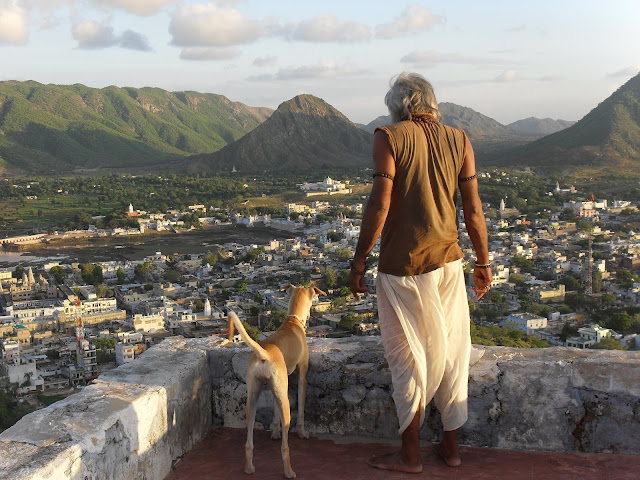There is a gigantic hooch trade in India, as government regulation and taxes on the legit alcohol industry are perverse. The sale of cheap, potent, sometimes-methanol-containing homebrew is a profitable trade- sometimes even for local politicians and police who are paid to forget the strict Indian hooch laws (Gujarat, for example, is actually a dry state prohibiting ALL alcohol sales.)
Our NGO, IDEX, works in many villages throughout Rajasthan. Some deal with such harsh, object poverty (think child malnutrition/starvation), that IDEX does not send its young foreign volunteers to see them. Our village is not one of these. Some of our families own motorcycles, some own livestock, one even has satellite TV! Chandyi Kheryi is by no measure posh, but it is my opinion that the residents owe thanks for many of their better living standards to the illegal liquor trade.
One of the things said to be 'keeping the Kanjar down' is the negative stigma that comes from their brewing of moonshine. I don't quite understand this as it seems to me that a number of regular Jhalrapatans and even local law enforcement are regular customers of the Kanjar brew (buying only at night, of course).
Before I go on here, let me say this: I know neoliberalism isn't perfect; if I took anything with me from my anthropology classes out to India it was a constant second guessing of the whole "we have to save these people from their current lifestyles" mision. I mean, is it possible that slum dwellers and the tradition-ridden rural poor are actually quite happy with their situations (or at least content)? Perhaps the best course of action to be taken isn't one of development and seeking to raise income education levels... but that's another post. For now, I'll just put on my economist hat and assume that developing the rural poor's markets and 'living standards' is the best thing Westerners (or at least young idealists) can strive.
So here's my question for IDEX and the residents of Chandi Kehri: Why not join the country liquor industry? The twenty or so legal Indian alcohol manufacturers currently sell 200 million cases a year, pulling in a huge chunk of change for the wet states which license and heavily tax them. Now I know it's not all that simple (remember that negative social stigma with alcohol makers? not to mention the whole caste system thing making it nearly impossible for a Kanjar to land a janitorial job, let alone a major manufacturing license for a so called poisonous industry; but again, this is the econ talking in me, not the anthro).

^I wouldn't recommend entering the restaurant business to the Kanjar. It's not that it's a notoriously tough gig, but that Joney's Cafe in Agra makes food too good to beat (he even cooks kimchi!)
Other small enterprise ideas I've floated for the Kanjar include operating tuktuks (easy market to enter, but little profit power there); running a bus (harder market to enter and find a niche route in, but more potential revenue here); and, my favorite, running public pools (think about it! I've seen loads of kids playing around big mud puddles but NO pools. Probably have to work around the whole women showing skin and most people not knowing how to swim issues but after figuring those out, it'd be a gold mine maybe).
Of course, the biggest issue with a public pool would be the extreme water shortages in Rajasthan. Though here too is a story for another post.

^The possibilities for private transportation are endless in India!

^Is striving for unbelieveable riches always the best path? Probably not (my humble midwestern roots tell me money ain't everything), but generating enough wealth to send your kids to school seems like a noble enough goal. Therefore, I encourage the marginally and extreme poor to create enterprises.
Example: Manufacturing disposable bowls for sale to street vendors. Filling a market need with a biodegradable and cheap product? Absolutely brilliant!! More on these genius little business ideas this winter...

See: "Poisonous Mix." Times of India, July 14









































